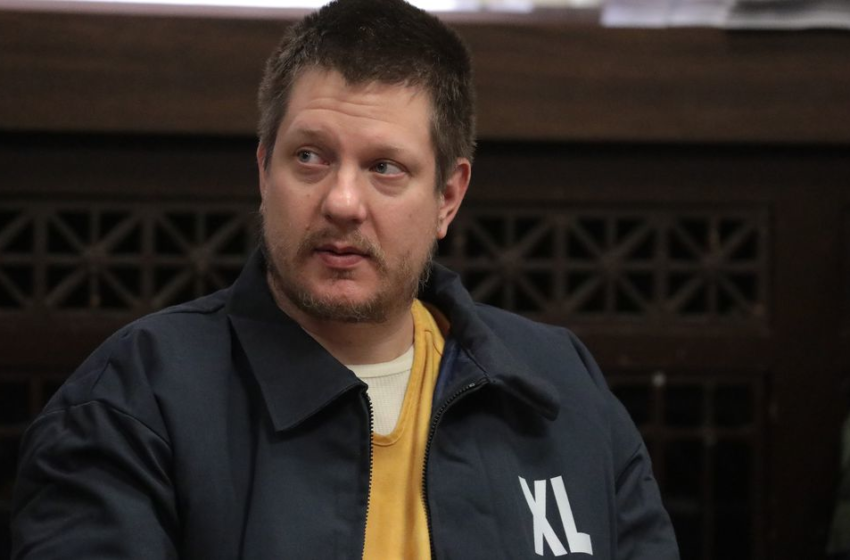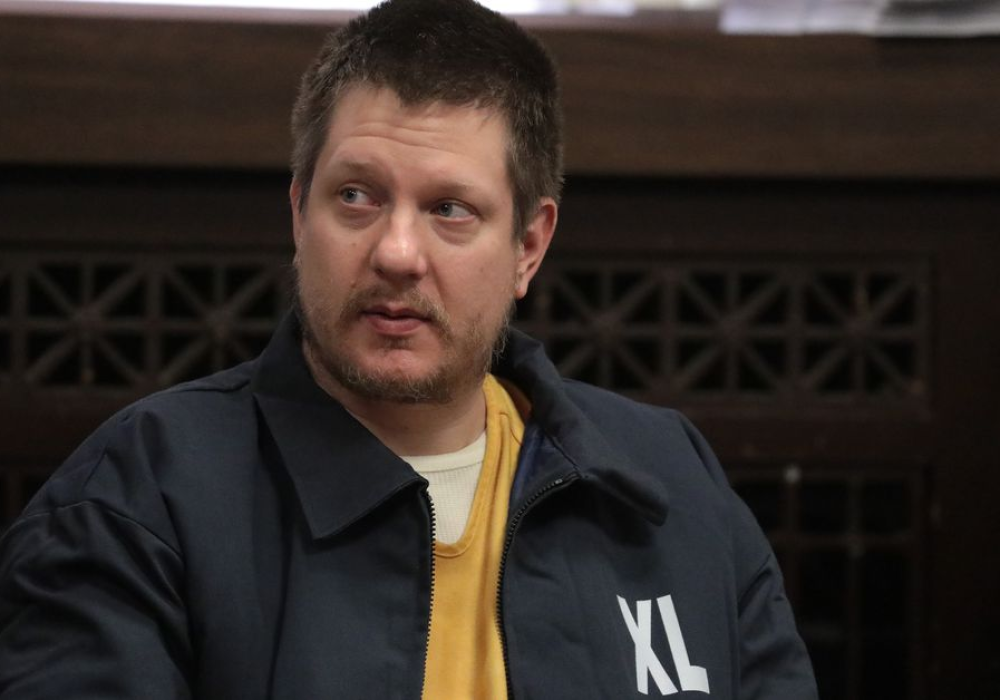Ex-Chicago cop Jason Van Dyke was released from custody early Thursday after serving three years in prison for the murder of 17-year-old Laquan McDonald, and faced a deafening condemnation from community leaders and politicians who wanted him to remain behind bars.
Mayor Lori Lightfoot called his release a “supreme disappointment.” Cook County Board President Toni Preckwinkle said it was a “gross miscarriage of justice.”
Cook County State’s Attorney Kim Foxx urged action “on the federal level” against Van Dyke, something the Black teen’s family has been pressing.
McDonald’s grandmother Tracey Hunter has been one of the loudest advocates for federal charges against Van Dyke, who is white. “I just want this man to get the rightful time he [was] supposed to got in the first place.
“Ain’t nothing wrong with that,” Hunter told the Sun-Times. “If a Black man happened to kill a white police officer, he would’ve got his rightful time.”
Hunter said she couldn’t sleep Wednesday night. “Words can’t express and explain the feelings that my whole family is going through,” Hunter said. She said her daughter, McDonald’s mother, “doesn’t want to talk to nobody. She’s at a loss for words, everybody’s at a loss for words. This man served no time… [and] now he’s out?”
Hunter also directed her anger at Lightfoot for the slow pace of police reform after the 2014 death of McDonald. “She lied about everything,” Hunter claimed. “She’s not fit to be a mayor.”
Van Dyke was released at 12:15 a.m. Thursday from Taylorville Correctional Center outside Springfield, serving about half of his 81-month sentence because of time credited for good behavior.
Van Dyke was the first Chicago police officer in nearly 50 years to a face murder charge for an on-duty killing. The charges were filed after a video of the 2014 shooting was ordered released by a judge.
Van Dyke was convicted in 2018 of second-degree murder and 16 counts of aggravated battery — one for each bullet he fired at McDonald.
Foxx said the sentence did “not meet the crime” and encouraged new charges on the federal level. “If there’s an ability to do something about it on the federal level, then, by all means, something should be done,” she said in a statement.
It’s unclear if federal charges will be filed against Van Dyke. Activists planned to rally Thursday afternoon at Federal Plaza in Chicago to urge federal prosecutors to take action.
“I suggest, and hope and pray … that all those who have the power to make sure that there’s accountability for the death of Laquan McDonald, do everything in their power to hold him accountable,” Foxx said.
Lightfoot said she understands “why this continues to feel like a miscarriage of justice, especially when many Black and brown men get sentenced to so much more prison time for having committed far lesser crimes. It’s these distortions in the criminal justice system, historically, that have made it so hard to build trust.”
While his release may be disappointing, Lightfoot said the prosecution of Van Dyke represents progress in reforming the criminal justice system.
“This prosecution led to historic reforms, including comprehensive legislation that created the first-ever community police oversight body in Chicago, and a consent decree to oversee CPD reform,” Lightfoot said.
However, a recent watchdog report found that Lightfoot’s administration has been slow to implement those reforms. The report found that just over half of about 500 reforms required under a federal consent decree have been carried out even partially.
Preckwinkle agreed that Van Dyke’s conviction “was a step in the right direction,” but said his sentence “is at odds with the thousands of Black and brown people behind bars for nonviolent offenses.
“And in the years following Laquan’s murder, we have lost more young Black and brown men at the hands of police,” she added.
Joseph McMahon, the special prosecutor who led a team of attorneys that secured Van Dyke’s conviction and who asked the judge to impose an 18-20 year sentence, said he hopes people don’t think Van Dyke escaped punishment.
“I know this is difficult to accept, especially for minority communities marginalized by police and the criminal justice system for decades, but this (the conviction and sentence) is a sign of progress,” he said.
“Any length of time for a former cop is difficult,” McMahon added. “He was physically attacked, spent most of the time in isolation and that is the result of the very real danger he faced day in and day out for the last 3 1/2 years.”
Van Dyke, 43, dropped appeals of his conviction a year into his sentence because, his attorneys said, he wanted to serve out his time and avoid further attention.
Van Dyke was beaten by inmates at a federal prison in Danbury, Connecticut early in his sentence. He has spent much of his time behind bars since in solitary confinement and has been repeatedly transferred among prisons.
Van Dyke will serve three years on supervised release, equivalent to parole, which will require occasional check-ins with a court officer.
Wherever he lives in Illinois, he will also have to give information to his local police department for the state’s Violent Offender Against Youth Registry, which would typically make information such as his address available on a public database.
His wife and two daughters still live in the family home on the Southwest Side.
The Associated Press contributed to this report.










